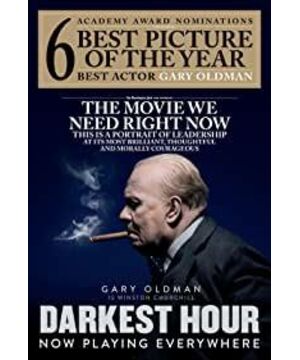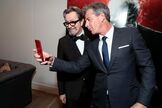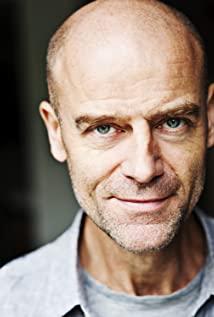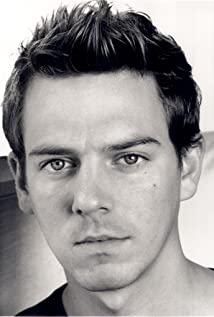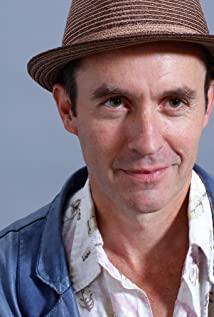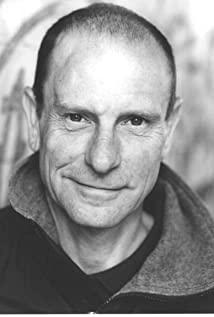This article was published in "Fangyuan" magazine.
To watch a movie is to watch people. Movie fans are like old folks. When the movie is released, you can judge the inseparableness by taking a look at the list of creators, who is the director and who is the actor. "The Darkest Hour" is in theaters, and this film is available because of these three people: Joe White, Gary Oldman, and Churchill. Joe White is an emerging British director with a deep literary accomplishment. His starting work was Jane Austen's "Pride and Prejudice", and the adaptation of Tolstoy's "Anna Karenina". Be famous for Joe White. It was "Atonement" in 2007. The blurry details, the fresh and full picture, exudes a strong literary atmosphere, but in the elegant form, it is a serious theme of atonement and forgiveness. On one side is the raging World War II like a meat grinder, and on the other side are the Bolshevik cigarettes of the verdant couple. Heaven and hell are both in the world.
The historical backgrounds of "Atonement" and "Darkest Hour" largely overlap, and both involve the early stage of World War II and the Dunkirk retreat. "Atonement" writes the story of ordinary people into an epic, and "The Darkest Hour" restores historical figures as "ordinary people." These two films each have their own brilliance and good methods for the director. Gary Oldman, the uncrowned actor, is superb acting. He is the Count Dracula in "The Four Hundred Years of Vampires", the terrorist in "Air Force One", and the Beethoven in "Immortal True Love". He was nominated for Oscar with "Tailor, Potter, Soldier, Spy". Best Actor. This time, in order to play Churchill, drink into a beer belly, stick a double chin, next year's Oscar, the weight of the trip, seems to be asked. Gary Oldman is good at interpreting people with great spiritual power. Earl Dracula, terrorists, Beethoven, and even Churchill, all this is true. The most typical thing is to count the terrorists in "Air One". Putting this character together with Churchill will show the tension. From the perspective of the other, one is a Soviet Russian terrorist and the other is a British prime minister with iron and blood. He is daring and unrelated; from the same perspective, the terrorist and the British leader are mirror images of each other. A madman with great mental power. Gary Oldman interprets terrorists with a very hierarchical, calm and dynamic interpretation.
Stillness and movement are just a shallow confrontation, and the excavation of the character's spiritual world is what Gary Oldman shines the most. He used his body language to portray a neurotic terrorist into a three-pointer, full of flesh and blood. He can be called the only "soul" in the brainless action film "Air Force One". In contrast, Harrison Ford's tough guy president, Become a "dumb" with facial makeup. As mentioned at the beginning of this article, watching a movie is watching people. To watch "The Darkest Hour", the first is to see director Joe White, the second is to see actor Gary Altman, and the third is to see Churchill, the soul of the film-the one who loves smoking cigars and making V gestures British fat greasy white man. Churchill in the movie is a bit calm, decisive and humorous. The original intention of the director was not to subvert Churchill's familiar image, but to photograph the deterrence and charm of this bald old white man.
As a result, we have seen a series of good shows in the darkest moments, and most of them can't escape the restrictions of traditional routines. His brilliant and arrogant speech in the House of Commons, his eagerness when he moved rescue soldiers to the President of the United States, the tenderness of his iron man when he was alone with his wife...
I have to say that the West has its own set of "political correctness." Portraying great historical figures like Churchill cannot be as wild as a fictional character, and the general direction cannot be "wrong". Churchill’s screen image is similar to those of the "Gao Daquan" characters in revolutionary movies. The difference is that the director has added a layer of humanity, which can be regarded as a conservative "local flavor." We think that the image of "Gao Daquan" that is strong without desire is fake. As everyone knows, human nature, too human nature, will also be distorted. In books such as "Churchill's Autobiography" and "Memoirs of World War II", Churchill's image is fuller and closer to the historical truth. To put it more critically, the movie made Churchill too much like a normal person, with some meaning of "to hide for the Lord". In fact, Churchill was not a "normal person" at all. Churchill's fanaticism in military affairs and his mastery of tactics are no less than Hitler's. His desire to go to the battlefield and make achievements is no one in his contemporary England. Of course, his "Three Views" are much more upright than Hitler. His grandfather and father are important figures in the British Conservative Party. Before Churchill, the British prime minister was Chamberlain who pursued the "policy of appeasement."
In 1938, Hitler sent troops to invade and occupy Austria, and then Chen Bing the Czech border. As the head of a big country, Chamberlain saw that the younger brothers around him were bullied by hooligans, and he was naturally furious, so he made a move that a leader of a big country often has-strongly condemned.
The German fascists are sure that the Commonwealth, headed by Chamberlain, is a "sniffing" government and continues to intensify its aggression, and Chamberlain continues to intensify its condemnation, and fantasizes about making peace with the Nazis, and wants to betray other countries (Czechoslovakia). There was peace in the British Isles. It wasn't until Hitler tore up the "Munich Agreement" and the army crushed the country and invaded the entire Czechoslovakia that Chamberlain woke up like a dream and gave up his policy of appeasement. At this time, Ximo's wings are complete and it is difficult to remove, and the world war is about to enter a white-hot. In our evaluation of the British appeasement policy, we do not necessarily have to blindly criticize it. Judging from the situation at the time, this policy can be regarded as in line with the special national conditions of the United Kingdom. During World War II, the old British empire that never sets in the sun has actually reached the time of sunset. The world dominance has long existed in name. Its domestic economy has been affected by the First World War and the Great Depression and has been in a weak state. It includes Canada, Australia, New Zealand, and New Zealand. The eight dominions, including Ireland, South Africa, Myanmar, and India, are not monolithic. Many of them are secretly ill-intentioned and eager to move. They have long ceased to share the same spirit with the United Kingdom. They are only forced to tie themselves to the United Kingdom because of force or security concerns. Together. In addition to the actual situation in the UK at the time, Chamberlain, as the head of state, his own temperament and character is also one of the reasons for the appeasement policy. Chamberlain’s childhood was rough and he lost his mother at the age of six, so that he was extremely introverted, and even shy to not participate in school debates, although in the future growth path, Chamberlain temporarily defeated his personality weaknesses and went all the way. , It’s steadily growing, but the character defects caused by childhood shadows are difficult to eradicate. In addition, he is not sociable, only interested in botany and birds, and even became an ornithologist in the Royal Horticultural Society. From this we infer that Chamberlain is likely to know the birds but not the people, especially not knowing the "bird man" Hitler, which is deceived.
Hitler, madman, Chamberlain, coward. When a madman meets a coward, he naturally squeezes it when he wants to squeeze it, or rubs it round when he wants to make it round.
With Chamberlain as a coward in power, Britain was naturally eaten to death by Hitler. At the time when the horses were chatting together, the heroes of Great Britain were all gearing up, with fire in their eyes. Among the group of heroes, the top one was Churchill.
Churchill: "Unah, Hitler, don't take care of the family, do you really treat me as no one in the British Isles?" Churchill, too. He is not like Chamberlain, who likes to carry cages and birds, but loves war games since he was a child. He has collected more than two thousand toy soldiers. When he is idle, he shoots rabbits with double-barreled shotguns in his own territory. The wicked have their own wicked grinds, just like in Quentin's movies, only the "shameless bastards" who are more "evil" than the Nazis can do things for the heavens. When "Shameless Bastard" Churchill succeeded Chamberlain and became British Prime Minister, Hitler's good days were coming to an end. A madman encounters a fierce man, for whom does the death knell sound? For Hitler.
To say that Churchill is a fierce man is not a quick talk, but a well-founded one. First of all, his family background is fierce. Churchill was born in a wealthy family, his grandfather, Marlborough, was the Governor of Ireland, and his father was the leader of the House of Commons and the Chancellor of the Exchequer. Churchill went to school, and his parents chose the most expensive aristocratic school for him. It has a swimming pool, a football field and a cricket field. Churchill hated the school's courses. He counted a few points every day and lived like a year. When he got home, he played with his toy soldiers and played war games. As early as when he was studying at Harrow Public School, Churchill showed his courage and strategy. He likes to play pranks by the pool, sneaking behind other children, and violently pushing them into the pool. Once, he broke ground on his Tai Sui head and pushed a sixth-grade senior into the deep water area. When the other party revealed his identity and Xingshi asked guilt, Churchill hurriedly said: "I'm very sorry, you are so short, I thought you were in the fourth grade. Hearing this sentence, the other party added fuel to the fire, and if he didn’t get out of his anger, he saw that Churchill was about to feast on his old punch. At this time, he witty said: "My father is a big man, the Minister of Finance, and he is also very good. Short." Hearing this sentence, the senior was appreciative, and he smiled, turning the fighting into a jade silk.
The toy soldier determined the aspirations of Little Churchill in his life. After that, his education was to enable him to enter the top military school-Sandhurst Military Academy. In the military school, Churchill's courses include tactics, fortification, topography, military law, military administration, etc. In the "Historical Records of Xiang Yu", Xiang Yu claimed: "Books are enough to remember names and surnames; swords, one enemy, not enough to learn, to learn ten thousand enemies." Xiang Yu's ten thousand enemies refers to the art of war. Similarly, among the many courses in the military academy, Churchill is most interested in tactics, and he is eager to apply what he has learned so that one day he will be "enemy of ten thousand people." Churchill delved into a large number of military classics, such as Hamley's "War Operations", Maine's "Infantry Tactics", etc., and also ordered a series of history books about the American Civil War, the Franco-Prussian War, and the Russian-Turkish War. A small military library. Compared with reading theory, Churchill prefers "junior fighting". He and his partners dig trenches, build shelters, build sandbags, set up iron briers, make directional mines, and learn to use gunpowder, blow stone bridges, and make pontoons. He even drew a brief map of the Camberley area. When Hitler was still a poor young literary and artistic man selling paintings in Vienna to make a living, Churchill had already completed most of the military courses, laying a solid foundation for killing the madman Hitler in the future. Several years of training at the military academy made Churchill complacent, but he regretted the relatively peaceful international environment before the First World War. When nothing happens, Churchill likes to climb to the top of the military academy's post tower, go up to the tall buildings alone, see the end of the world, and sigh that his life is bad, and the hero is useless. In his autobiography, Churchill wrote about his state of mind at that time: If I was born 100 years earlier, I would have the opportunity to participate in the war against Napoleon that lasted for more than 20 years! Just thinking about it can make me very excited. But now, everything is over. Since the Crimean War, the British army has never fought with the white army. People all over the world love peace more and more, and become more and more wiser, and the great war years are gone forever! Fortunately, there are still some barbaric peoples in the world, such as Zulus, Afghans, and Sultan's Dervish. If you are lucky, there may be a mutiny in India, and we will have the opportunity to conquer India again, but what fun is there to fight the poor Indians? It's no different from playing a few wild rabbits. From these words, we can see that Churchill loves war in his heart, but he likes to be "passive" and does not fight "unjust wars." It is best to have a "madman" start a war, and he will lead the army to resist. In this way, he will not only be able to overwhelm the "war addiction", but also be able to stand morally. Fortunately, there was no shortage of "lunatics" in those days, and Hitler, the madman, used his brazen aggression to meet the needs of the "passive" struggle of the madman Churchill. The content written in "Churchill's Autobiography" is naturally inconvenient to put in the movie because of "political incorrectness". After understanding these, come to watch the movie, it will have a special flavor. When Churchill delivered the "Fight to the End" speech in the Lower Parliament, saliva splashed, the audience thundered, and the spotlight flickered. However, in an unknown corner of his heart, the behemoth that longed for war finally got his wish. The ground is fed. We will fight to the end. We will fight in France, we will fight in the sea, we will fight in the air with increasing confidence and strength, we will defend the homeland at all costs, we will fight on the beach, we will We will fight in the fields and streets, and we will fight in the mountains. We will never surrender, even if our island or most of this island is conquered and hungry-I never believe that this will happen-our imperial subjects overseas, in the armed and armed forces of the British fleet Under the protection, they will continue to fight until the new world uses all its power to save and liberate the old world when God thinks it is appropriate. Fighting in the sea, fighting in the sky, fighting on land, fighting in the fields and long streets, all-round sea, land, and air satisfies Churchill’s "desire to fight". The man who used toy soldiers to simulate warfare in his childhood was the first real Released.
However, this is not to say that Churchill is a war madman like Hitler. Churchill is rational. He is enthusiastic about war, loves his compatriots, and resists aggression. These three have been perfectly blended with him, and the beast in his heart and Social justice, in Churchill's view, also seemed to fit in with each other. Churchill does have the cute character of a "shameless bastard". In his memoirs, he not only expresses his love for war straightforwardly, but also reveals the secrets of the campaign to the world. The fierce Churchill, can be called the leader of the congressman, the leader of Congress, and as a veteran of several dynasties, he once said that he ran for election more often than any member of the House of Commons who was still alive at the time. As for the election, Churchill looked a little dirty. First go to the local bosses to "visit the docks" to clear the candidate barriers, then visit celebrities, visit electoral districts, study the preferences of voters, and draft campaign speeches. When all this is handled properly, ask the big consortium to spend a lot of money, spend money on hype, put money on your face through the newspaper and media, and at the same time, you must use any means to pour dirty water on your opponents. For those seemingly shocking speeches, the inside story is even more boring, Churchill said, it is nothing more than thinking of a few big slogans, no more sensationalism, but also a few jokes from time to time, appearing to be a heavyweight. Every time the election speech, the colleagues of the election team are the worst. They have to listen to an old joke dozens of times, and every time they listen to it, they have to pretend to be interested. It is absolutely hypocritical.
The people can do it, but cannot know it. After Big Mouth Churchill went down into the wild, in his autobiography, he completely tore off the "emperor's new outfit". But his true views on the campaign and speeches are also "politically incorrect", and you will not see them in these mainstream movies. If Churchill was alive and saw people in the movie theater, they were moved by those speeches and slogans, and they would shed tears and smile secretly, muttering: Idiot.
Author Zhe Kongkong exchanges WeChat
View more about Darkest Hour reviews


